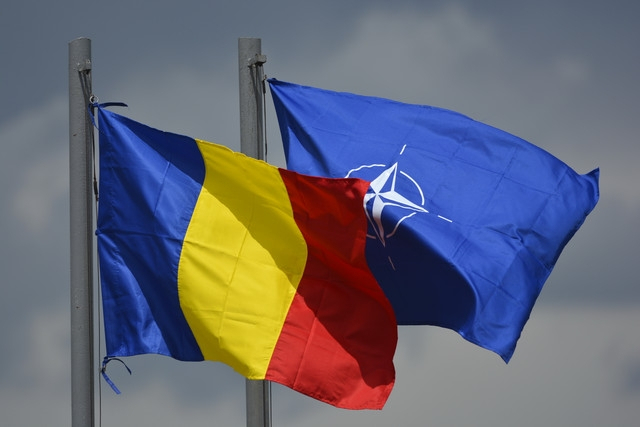NATO Plans in the New Geopolitical Context
President Vladimir Putin made a mistake by underestimating Ukraine and NATO
Warning: Trying to access array offset on null in /home/web/rri.ro/public/wp-content/themes/rri/template-parts/content.php on line 53

Warning: Trying to access array offset on null in /home/web/rri.ro/public/wp-content/themes/rri/template-parts/content.php on line 98
Corina Cristea,
15.06.2023, 16:15
President Vladimir Putin made a mistake by underestimating Ukraine and NATO, and the Alliance remains committed to supporting Kiev ‘for as long as it takes’, NATO Secretary General Jens Stoltenberg reiterated. According to the military leader, it will be a great tragedy for Ukrainians if President Putin wins, but, he added, it will also be dangerous for us because the message for him and all alternative leaders, including Beijing, would be that when they use force, they get what they want and that would also make us, the NATO allies, the United States, and Europe, more vulnerable. We don’t know how this war will end, but what we do know is that when it does, it is extremely important to be able to prevent history from repeating itself, Jens Stoltenberg said. In parallel with the support given to Ukraine, NATO is preparing for fundamental changes. The alliance has not needed to develop large-scale defense plans for decades, because post-Soviet Russia was no longer perceived as an existential threat, but now NATO is preparing to take a big step into the future at its next summit. A Reuters analysis claims that, in Vilnius, NATO leaders will approve secret military plans, which will detail, for the first time since the Cold War, how the Alliance would respond to a Russian attack. The analysis starts from the statement of a senior NATO military official, Rob Bauer, who says that the fundamental difference between crisis management and collective defense is the following: it is not us, but the adversary who sets the calendar of events. We must prepare for the fact that a conflict can break out at any moment. George Scutaru, general director of the New Strategy Center, explains:
There are various hypotheses for the evolution of this conflict in Ukraine. And one of the hypotheses that must be taken into account, and cannot be ignored, is that of an escalation that would ultimately lead to a direct confrontation between NATO and the Russian Federation, determined by the aggressive behavior of the Russians. The military must take into account such a possibility, just as the politicians must listen and validate, let’s say, such a working hypothesis, put on the table by the military. So, after all, it is natural for this to happen in the current context, because, as we see, the war will continue, Russia’s aggression is not decreasing, on the contrary, it is increasing. Putin and the political-military leadership of the Russian state show no signs of wanting to reach a peace solution. And things are heading towards a war of attrition that will last, and that can also determine an undesirable course, a sudden escalation of the situation. This is determined by how Russia will act in the future, that’s why we have to be ready.
The Black Sea proved to be a very vulnerable space, I could even say the most vulnerable, adds George Scutaru, because in this region we find the frozen conflicts of Europe, we find military action, starting with Georgia, then with the annexation of Crimea, and now with Russia’s full-scale invasion of Ukraine. We must be prepared to consider all options. The world must understand that NATO has the ability to face any challenge, and NATO is us, NATO’s strength means an accumulation of capabilities made available by all NATO members, says the director general of the New Strategy Center. Political and military analyst Claudiu Degeratu also referred to the decisions that would be taken into account in Vilnius. We asked what has changed in the way we manage crises?
The perspective has really changed fundamentally, because a defense plan as it was done before 1989 by NATO, and as it will be done now, takes into account the threat profile of an adversary. For the last 30 years, we have discussed NATO plans for crisis situations, for remote combat, for interventions outside our Article 5 area. We plan our operations according to the situation, not an adversary. At this moment, the main opponent is the Russian Federation, and NATO has developed, based on last year’s decisions in Madrid, a concept of defense and deterrence for the entire Euro-Atlantic area. So, we are discussing a defense plan like we didn’t have after 1989, and it doesn’t resemble what it was before 1989, for the entire European strategic theater. To be clear, we are actually discussing the Atlantic area up to the eastern front, Poland, Romania, and to the north, from Norway to the southern flank, in the Mediterranean area. For the first time, we will also have national defense plans, which must be drawn in accordance with this great concept of deterrence and defense of the European strategic theater. They are integrated at the NATO level and, more than that, they must integrate with the new NATO force model, which is made up of three categories of forces, three contingents, and which should reach somewhere around 800,000 NATO soldiers, with different degrees and capacities of reaction. NATO must have the ability, based on this concept, to intervene in parallel under several conditions, in several situations, and for several possible developments in the entire European strategic area.
We are not just discussing a contingency plan for Poland, as we were discussing until now, or a contingency plan for Turkey or Romania, says Claudiu Degeratu. Now, the Russian Federation will have to know that NATO will be able to intervene in different areas with the same force and with the same impact capacity, and ability to take the fight immediately to the area where it is needed.





























